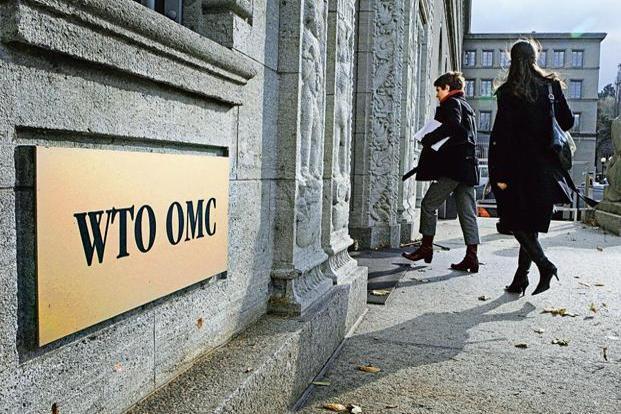Skip to content

Relevant for GS P2 & GS P3 :-

- India has inveighed against a “new round” of trade talks without “a system of enforcement of existing rules” at the global trade body, after a group of industrialized and developing countries intensified their efforts to launch plurilateral negotiations on controversial issues at the 12th ministerial conference in Astana, Kazakhstan, said people familiar with the development.
- The Astana meeting, which will be held on 8-11 June 2020, could radically change the character of the World Trade Organization from multilateral to plurilateral (involving two or more countries) for pursuing certain issues, which are being currently opposed by a large majority of countries, said trade envoys, preferring anonymity.
- The five issues that are being targeted for the plurilateral launch in Astana include electronic commerce, investment facilitation, disciplines for micro, small and medium enterprises, gender, and domestic regulation in services.
- In addition, the Astana meeting will also decide whether a post-2020 WTO will continue to operate on the principles of consensus, which is being seen as a major obstruction for pursuing issues of groups of countries without formal multilateral approval.
- More worryingly, the Astana meeting is also likely to experience battles among members on whether all developing countries will continue to avail special and differential flexibilities in the face of a renewed push for “differentiation” to exclude China, India, Brazil, South Africa and Indonesia, among others, from the special and differential treatment (S&DT) bracket, said the trade envoys.
- Following US president Donald Trump’s criticism that the trade body was being rigged against American interests, the WTO, along with the World Bank and the International Monetary Fund, had proposed reforms under the pretext of “modernizing the WTO”.
- Coincidentally, the reforms mooted by the WTO-WB-IMF were floated separately by the European Union and Canada. The central goal of these reforms was to move away from multilateral trade negotiations based on what are called Single Undertaking to plurilateral negotiations for making new rules.
- The Single Undertaking framework, which was the basis of the previous Uruguay Round of negotiations (1986-1994), and the current unfinished Doha round, requires all participants to agree on everything that is being negotiated.
- Without naming the “ideas” currently under discussions in closed-door meetings in Geneva, India’s trade envoy Ambassador J.S. Deepak mocked that “reform [of the WTO] is the flavour of the season and a number of ideas on reforms are being presented informally”
- “Without a system of enforcement of existing rules, the appetite for making new rules or for reforms would be poor,” India argued, while delivering a hard-hitting statement at a Doha trade negotiations committee meeting on 16 October.
- “Some of the ideas on reforms being floated in their breadth, novelty, and potential impact are akin almost, to launching a new Round, even when we still need to address some of the Doha issues, build on the work done and harvest some outcomes,” Deepak cautioned, according to an African trade envoy, who asked not to be named.
- India, according to the African envoy, proposed reforms of the Uruguay Round agreements such as the Agreement on Agriculture (AoA). India has made several proposals for changes in the AoA, including a change in the parameters for calculating public stockholding programmes from the 1986-88 base period, the elimination of most trade-distorting amber box subsidies provided by industrialized countries, and special safeguard mechanism for facing the unforeseen surge in imports of agricultural products.
- The need of the hour, said Deepak, “is to follow approaches that build and enhance “trust” among members and provide a healing touch, rather than those” that “freeze inequities against the developing countries and LDC (least-developed countries) interests”, “perpetuate the monopoly of (e-commerce) platforms and thwart competition”, “dump principles of non-discrimination and consensus which have made the WTO inclusive”, perpetuate “asymmetry of existing agreements”, and “compromise the ability of developing countries and LDCs to fight hunger and poverty which are still huge challenges for them”.
- A large majority of developing and poorest countries shared India’s concerns. India particularly criticized the WTO Secretariat for “becoming a party” to the reforms proposed by the World Bank and the IMF without prior approval from members.
- China, which is open to reforms, warned members to be careful “not to undermine the core and basic principles of the WTO such as non-discrimination, diminish the development right of the developing countries are weaken the spirit of consensus.”
- The US supports reforms barring the demands for strengthening the dispute settlement body. Washington wants that China’s non-market economy must remain the target of WTO reforms, while Canada which is hosting a meeting of 13 countries–the European Union, Japan, Switzerland, Norway, Australia, New Zealand, Kenya, Singapore, South Korea, Mexico, Brazil, and Chile in–Ottawa on Wednesday (24 October) will push for the reforms.


